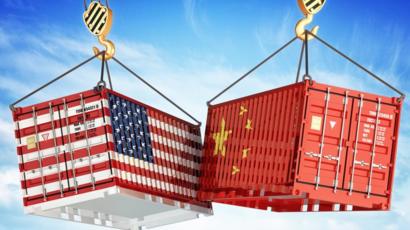By Victor Martino
California farmers and the state’s allied agribusiness industry have for the most part been unhurt so far by the tariffs President Trump has imposed on China and the in-kind retaliation by China against U.S. goods.
The pain has been felt the most by Midwest producers of soybeans, the U.S.’s biggest agricultural export to China.
Soy protein is a major component of pig feed (the Chinese consume a lot of pork); as prices of U.S. soy rise due to tariffs, Chinese pig breeders have been changing their mix of feed and buying Brazilian soy. The long-term implication of this for U.S. soy farmers is bad because history shows that once a country replaces all or some percentage of an export crop with the same crop from other countries, the original export country, in the present case the U.S., seldom or never gets the business back.
U.S. agriculture as a whole also has taken a big hit from China’s retaliatory tariffs, which are a result of the president’s continuing ratcheting-up of the tariff dollar percentages he’s imposed on Chinese goods. Tit-for-tat is how China is playing its defensive game in the trade war.
How hard has American agriculture been hit by the trade war? U.S. agricultural exports to China fell from $19.5 billion in 2017 to $9.2 billion in 2018. Farm bankruptcies increased across the U.S. by 13% in the year up to June 2019 — a period that roughly tracks the escalation of the trade war — according to the American Farm Bureau Federation.
But the major blow to U.S. agriculture — and this time it has the potential to seriously hurt California producers (tree nuts, dairy, citrus and wine are four big sectors to be very worried about) arrived in August when China announced its state-run industries would cease buying all U.S. farm imports.
This has caused concern and consternation — with President Trump as much as with China — throughout the U.S. agriculture industry.
For example, in a recent statement, Farm Bureau President Zippy Duvall called China’s announcement that it would end all U.S. farm imports “a body blow to thousands of farmers and ranchers who are already struggling to get by.”
In California, the Almond Board and the groups that represent the state’s winegrape growers and allied wine industry, are equally worried — and they’re calling on the Trump Administration to resolve the trade war against China now, as are citrus grower advocates.
Almonds, pistachio nuts, citrus and wine are the top four California crops and products exported to China.
Winegrape, citrus, almond and pistachio nut growers and the industries that support them will take a particularly big hit if China continues to not purchase U.S. farm goods.
For example, China is the second-largest importer of California almonds, importing over $500 million worth of the nuts in 2017. The Chinese have already imposed a 50% tariff on almonds. California produces 99% of the total U.S. almond crop. If China continues to not purchase U.S. farm goods it could do serious damage to growers and the entire California almond industry.
Further, China imported $663 million of pistachio nuts (the majority of the crop); over $500 million of wine; $186 million in dairy products; and $175 million of citrus from California in 2017, according to USDA and the California Department of Food and Agriculture.
The hit these farm sectors in California will take will be massive if China continues its moratorium on U.S. crops.
The escalation of the trade war also has the potential to deliver a significant economic body blow to the entire state.
California conducts more trade with China than any other state in the country. Our total trade with China tops $175 billion. As the state’s economy goes, so goes California agriculture.
The trade war has now escalated into a worse case scenario for California agriculture. It needs to be resolved now.
There’s a perfectly good reason no modern president, Republican or Democratic, has imposed tariffs on China — they don’t work.
China plays the long game when it comes to trade policy and politics. It’s system is designed for it. In contrast, a U.S. president has a maximum shelf-life of 8 years, which often gets cut short to four years.
China is looking to see what happens to President Trump in the 2020 election, which is a mere 14 months away. As such, China isn’t likely to give in to the Trump Administration’s trade demands anytime soon.
Trade wars are a zero-sum game. Seldom if ever is there a winner. Therefore the only solution to this one is a negotiated settlement, which President Trump has said he won’t do.
The Republican party has historically been anti-tariff until the president started imposing tariffs on China and other nations nearly a year ago. Therefore let’s hope Republican party leaders and members of Congress can channel that historic party commitment and will try to convince the president to change his mind and negotiate a settlement with China, before farmers and agriculture, including here in California, suffer an even more devastating economic body-blow than has already been the case.
By Victor Martino







